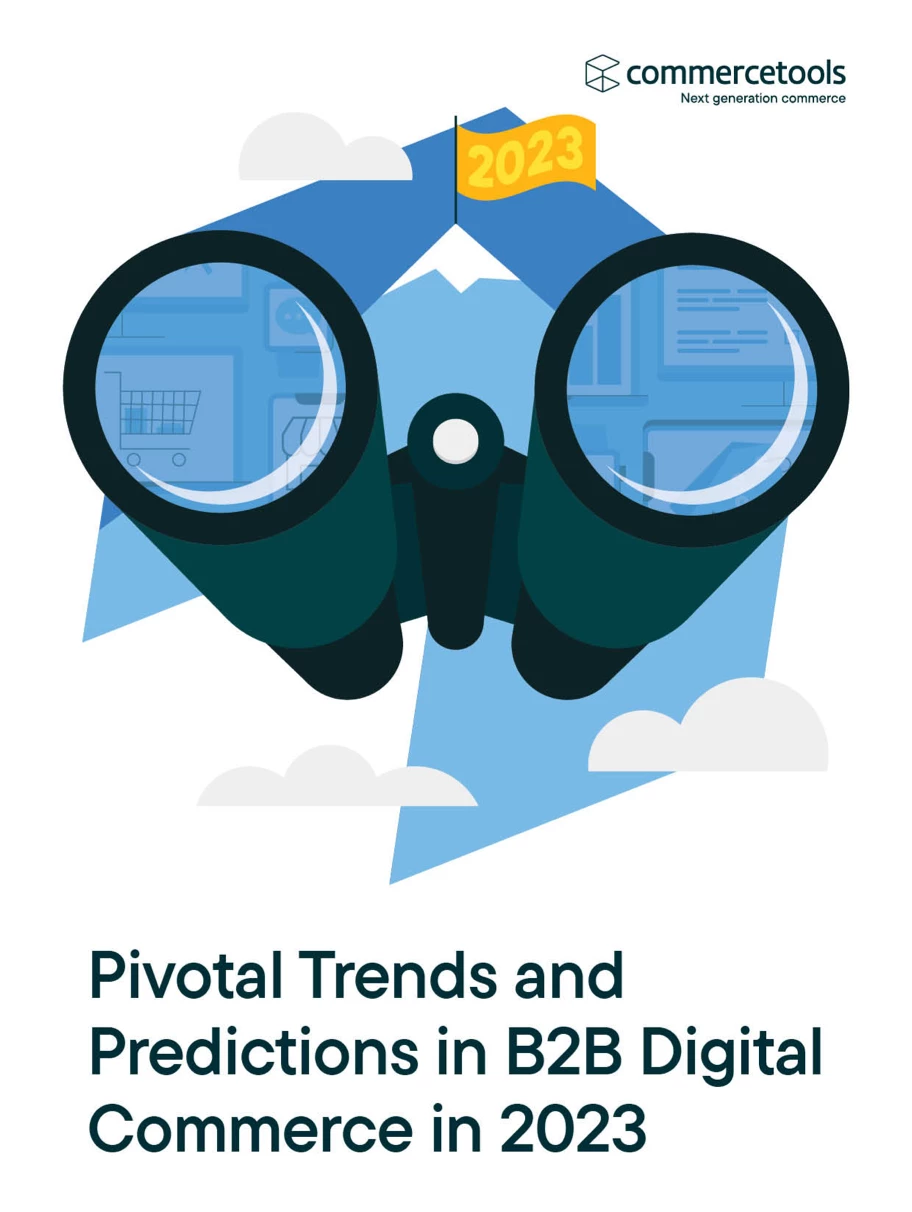Navigating the Future of B2B Commerce
Introduction
As the global business landscape continues to evolve, B2B commerce is experiencing rapid change and unprecedented growth. To stay competitive, it's crucial for businesses to keep a close eye on emerging trends and embrace the strategies that will drive success. In this blog post, we'll delve into the key B2B commerce trends for 2023, as outlined in the insightful whitepaper by commercetools, and discuss how businesses can leverage these trends for success.
Personalization and Customer-centricity
In 2023, personalization and customer-centricity are more important than ever. B2B buyers now expect seamless, personalized experiences similar to what they encounter in B2C interactions. To meet these expectations, businesses should leverage data-driven insights to create tailored offerings, targeted content, and personalized pricing structures. By putting the customer at the center of their strategy, businesses can foster deeper relationships and drive long-term success.
Omnichannel and Digital-first Strategies
The ongoing digital transformation has led to an increased emphasis on omnichannel and digital-first strategies in B2B commerce. Organizations must prioritize seamless digital experiences across multiple touchpoints, including mobile, social media, and marketplaces. This means investing in scalable, flexible e-commerce platforms that can adapt to ever-changing customer demands and integrating online and offline channels for a unified, holistic experience.
AI and Automation
Artificial Intelligence (AI) and automation have become essential tools for streamlining operations and improving decision-making in B2B commerce. These technologies enable businesses to analyze large amounts of data, generate actionable insights, and automate repetitive tasks. By harnessing AI and automation, organizations can enhance efficiency, reduce costs, and make more informed decisions to stay ahead of the competition.
Sustainability and Social Responsibility
Sustainability and social responsibility are no longer optional in the world of B2B commerce. Buyers increasingly prioritize environmentally-friendly and ethical practices when selecting suppliers and partners. Organizations must demonstrate a commitment to sustainability through transparent supply chains, eco-friendly packaging, and other green initiatives. By embracing sustainability, businesses can not only meet customer demands but also contribute positively to the environment and society.
The Growing Role of Marketplaces
Marketplaces have become an integral part of the B2B commerce landscape, offering a platform for businesses to connect with customers, suppliers, and partners. In 2023, marketplaces will continue to grow in importance, providing a valuable channel for organizations to expand their reach and generate new revenue streams. To capitalize on this trend, businesses should consider participating in relevant marketplaces and optimizing their presence to maximize visibility and engagement.
Conclusion
As the B2B commerce landscape evolves, businesses must stay informed of the latest trends and adapt their strategies accordingly. By embracing personalization, prioritizing omnichannel experiences, leveraging AI and automation, committing to sustainability, and exploring the potential of marketplaces, organizations can position themselves for success in 2023 and beyond. To delve deeper into these trends and strategies, download the comprehensive whitepaper by commercetools here.

